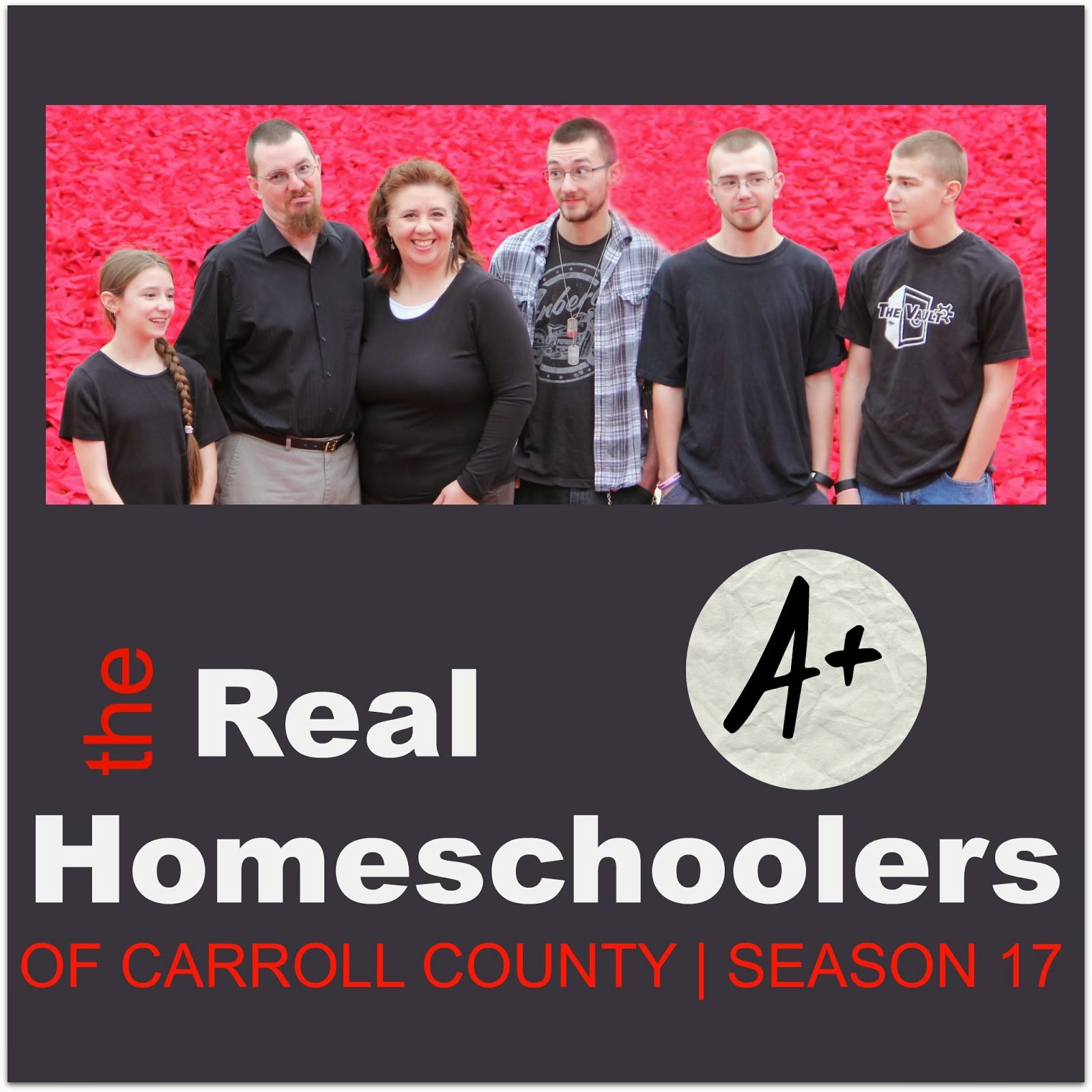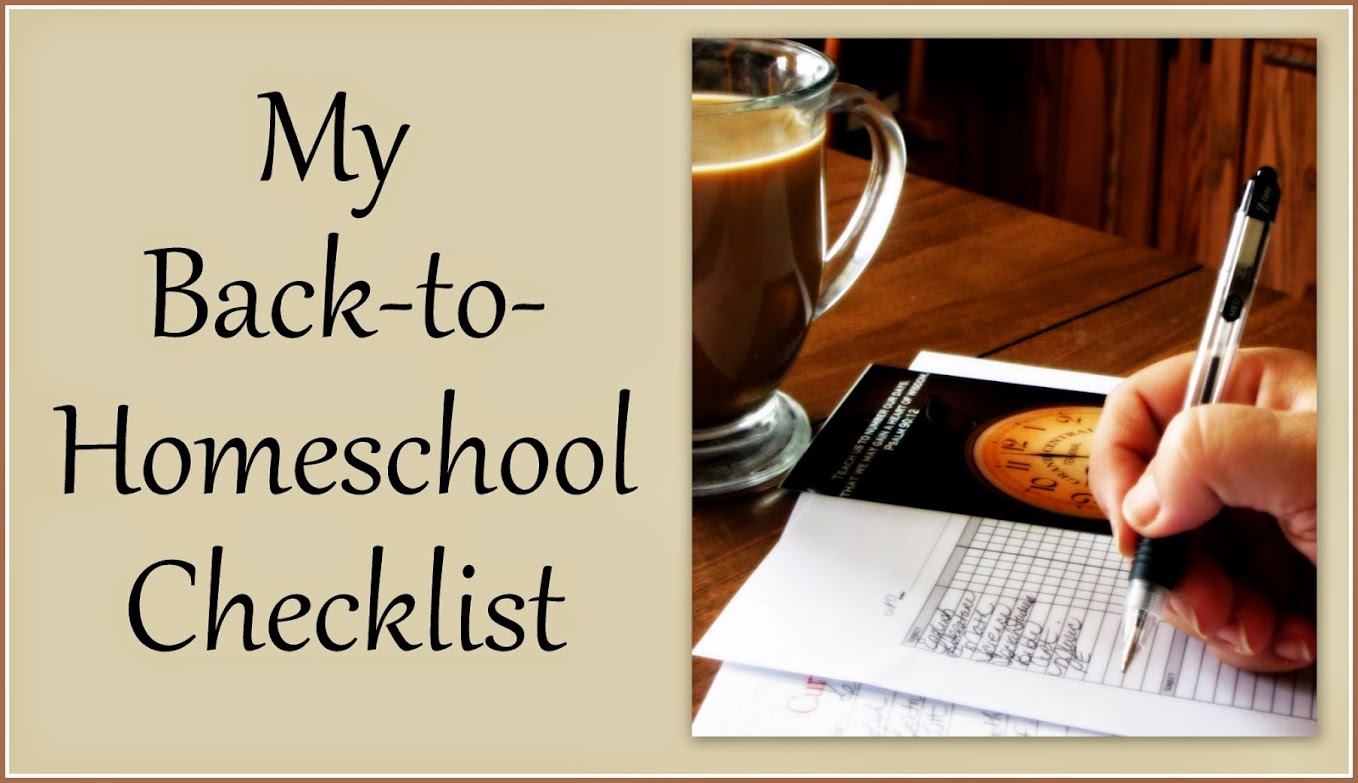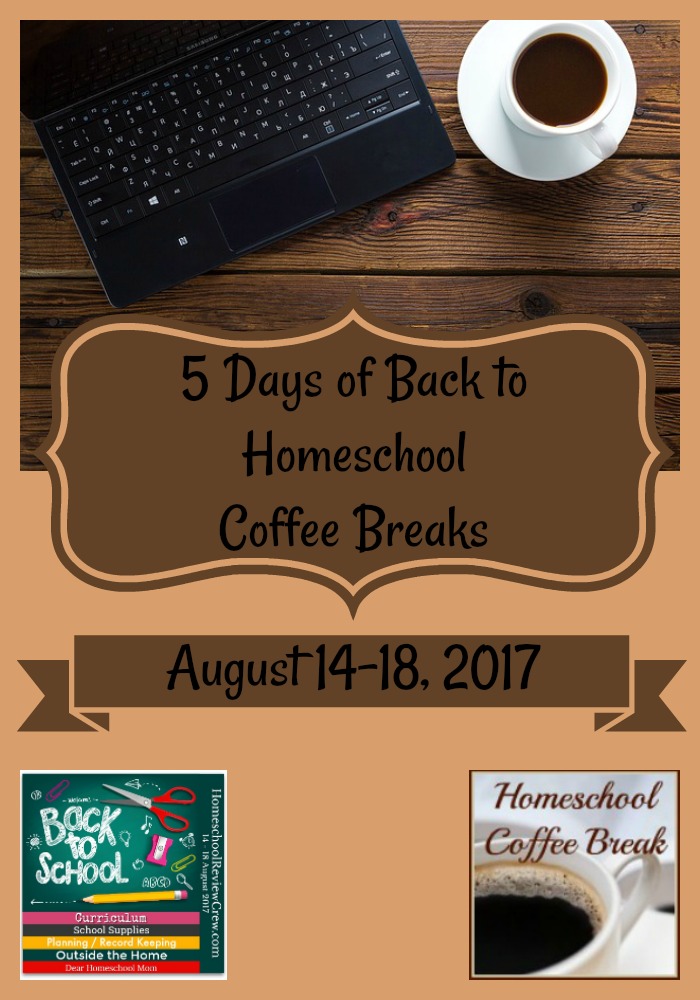This post contains affiliate links - using affiliate links from Homeschool Coffee Break helps fuel this blog and our homeschool - thank you!
No matter how long we've been homeschooling, we are curious about how other homeschoolers do things. And homeschoolers who are newer to the game obviously have lots of questions! This series will try to answers some of the questions homeschoolers ask each other. Questions about how we handle some of the little details and about our opinions on different aspects of homeschooling. Questions that we all might answer differently because what works great in one family might not work at all in another.
How do you handle subjects your kids dislike? What do you do if they struggle with a subject to the point of disliking it and avoiding it?
If you've been homeschooling for any length of time, you've probably found out that even the best and most compliant students have a subject they don't like as well as others. Or find something to complain about. I think it's super unusual for kids to like everything about school, and while delight-directed style learning may avoid some of that, chances are there will be something they need to learn that they don't want to, or they will balk at something because it's too hard.
So if you've got a kid that avoids math like the plague, or a student that complains bitterly about how hard writing is and how much they hate it, take heart! You're not alone, and it's rarely because you've done something really wrong in your homeschool. How you handle it is different depending on your child's age or grade and some other factors. I have had students that dislike or struggle with entire subjects, sometimes to the point of avoidance; and I've had students that hate doing certain kinds of assignments.
Early grades - In general, I think younger students object to things that seem boring or repetitive rather than to entire subject areas. So the kids that 'hate math' or 'hate spelling' might be expressing their dislike with worksheets or flash cards or spelling lists. Spelling lists just aren't that exciting most of the time, and fidgety boys and girls tend to get impatient with pages of worksheets. Especially if the understanding isn't coming easily. If they really aren't academically ready, or if tackling the touchy subject is truly stressful, then it may be best to take a break. It's tempting to just skip over basics like math facts or spelling rules, but be cautious about leaving out these foundational concepts. Take a short breather, evaluate if your child is ready, or look for a different approach to teaching, but basic reading, writing, and arithmetic really are necessary and not knowing them may set up future difficulties. But if your second grader is miserable studying botany, feel free to drop that for the time being and study space instead.
High School - Starting in middle school grades, you will find there are subjects kids don't like that well, but may be necessary in order to comply with the standards you must follow, or that are necessary credits for graduation or college acceptance. As they get older, it's more likely that they will realize that no matter how boring they think US History is, they have to have that credit to get their diploma.
Is it a skill you must learn or a subject you must cover? This is the first question to ask before deciding how to handle it. Skills kids must learn are basics - reading, spelling, math, following instructions. You can adjust the timeline for learning, or the teaching method, but they are basic necessary skills. For high school, there are requirements for credits in certain subject areas, but there may be quite a bit of flexibility in the courses chosen for some of those credits.
Is there another way to cover the subject that works better or is more enjoyable? If your teen dislikes reading, you're likely to have a fight on your hands if you try to get them to do a full credit Literature course each year. Scale back your expectations, and look for a way to include a little bit of important literature along the way. An understanding of grammar is important, but if diagramming sentences results in tears or tantrums, try a different curriculum that teaches grammar in a less intense way. So look at a possible curriculum switch if it's a necessary subject, or you may want to consider a co-op, tutor, or dual enrollment in a community college. If you are frustrated trying to teach or help or grade in certain subjects, there may be someone else willing to do that for you. One of my sons did great in Chemistry when another mom taught it as a small class. My daughter doesn't endlessly put off History homework since she has to have it done for a co-op class. I know kids who gave their moms all kinds of grief about doing English or Math, but managed just fine and ace the classes as dual enrollment students at the college.
Find motivation. My oldest son complained about all things grammar. He saw no point in learning parts of speech or diagramming sentences. When he was in eighth grade, he decided he wanted to get into journalism (he did change his mind later, by the way), so that gave me the opening to explain to him that he would be doing a lot of writing for a communications degree focusing on journalism, so having a solid understanding of sentence structures and proper writing skills would be important. He never complained about grammar again. He didn't like it, but he knew why it was important so he got it done. With high schoolers that have a good idea of what they want to do 'when they grow up', knowing why they need to get a passing grade in Algebra may help tame their complaints.
Enlist help. Yes, a tutor or mentor or even a study buddy to help with actually studying the material is helpful. But how about helping your student figure out how they learn most effectively so they can take responsibility themselves? We recently reviewed Victus Study Skills System, and I think it's a great program for just that. My daughter gained some insights into how she learns best and made a few adjustments in her study routine. She learned some better strategies for test preparation and that means less stress and complaining as she studies. Another way to enlist help is to give a respected adult - a youth leader, one of your friends, a parent of one of their friends - permission to check up on how your kid is doing. The interest and encouragement of another adult can be a good motivator.
Read our full review of Victus Study Skills System here: Victus Study Skills - A System for Effective Study

Is reading the troublesome subject? Check out What About Kids That Don't Like to Read?

Is it artsy stuff that causes complaints? I've got a few suggestions in How Do You Find Electives For a Student that Isn't Artsy?

Or maybe it's Science that elicits moans and groans. How Important Are Labs in Science?

How do you handle the subjects your kids dislike? Leave a comment and let me know what works for you - or leave a homeschool question you're curious about.
Don't miss a coffee break! Subscribe to Homeschool Coffee Break by Email!So if you've got a kid that avoids math like the plague, or a student that complains bitterly about how hard writing is and how much they hate it, take heart! You're not alone, and it's rarely because you've done something really wrong in your homeschool. How you handle it is different depending on your child's age or grade and some other factors. I have had students that dislike or struggle with entire subjects, sometimes to the point of avoidance; and I've had students that hate doing certain kinds of assignments.
Early grades - In general, I think younger students object to things that seem boring or repetitive rather than to entire subject areas. So the kids that 'hate math' or 'hate spelling' might be expressing their dislike with worksheets or flash cards or spelling lists. Spelling lists just aren't that exciting most of the time, and fidgety boys and girls tend to get impatient with pages of worksheets. Especially if the understanding isn't coming easily. If they really aren't academically ready, or if tackling the touchy subject is truly stressful, then it may be best to take a break. It's tempting to just skip over basics like math facts or spelling rules, but be cautious about leaving out these foundational concepts. Take a short breather, evaluate if your child is ready, or look for a different approach to teaching, but basic reading, writing, and arithmetic really are necessary and not knowing them may set up future difficulties. But if your second grader is miserable studying botany, feel free to drop that for the time being and study space instead.
High School - Starting in middle school grades, you will find there are subjects kids don't like that well, but may be necessary in order to comply with the standards you must follow, or that are necessary credits for graduation or college acceptance. As they get older, it's more likely that they will realize that no matter how boring they think US History is, they have to have that credit to get their diploma.
| "Why do we have to study this??" |
Is it a skill you must learn or a subject you must cover? This is the first question to ask before deciding how to handle it. Skills kids must learn are basics - reading, spelling, math, following instructions. You can adjust the timeline for learning, or the teaching method, but they are basic necessary skills. For high school, there are requirements for credits in certain subject areas, but there may be quite a bit of flexibility in the courses chosen for some of those credits.
Is there another way to cover the subject that works better or is more enjoyable? If your teen dislikes reading, you're likely to have a fight on your hands if you try to get them to do a full credit Literature course each year. Scale back your expectations, and look for a way to include a little bit of important literature along the way. An understanding of grammar is important, but if diagramming sentences results in tears or tantrums, try a different curriculum that teaches grammar in a less intense way. So look at a possible curriculum switch if it's a necessary subject, or you may want to consider a co-op, tutor, or dual enrollment in a community college. If you are frustrated trying to teach or help or grade in certain subjects, there may be someone else willing to do that for you. One of my sons did great in Chemistry when another mom taught it as a small class. My daughter doesn't endlessly put off History homework since she has to have it done for a co-op class. I know kids who gave their moms all kinds of grief about doing English or Math, but managed just fine and ace the classes as dual enrollment students at the college.
Find motivation. My oldest son complained about all things grammar. He saw no point in learning parts of speech or diagramming sentences. When he was in eighth grade, he decided he wanted to get into journalism (he did change his mind later, by the way), so that gave me the opening to explain to him that he would be doing a lot of writing for a communications degree focusing on journalism, so having a solid understanding of sentence structures and proper writing skills would be important. He never complained about grammar again. He didn't like it, but he knew why it was important so he got it done. With high schoolers that have a good idea of what they want to do 'when they grow up', knowing why they need to get a passing grade in Algebra may help tame their complaints.
Enlist help. Yes, a tutor or mentor or even a study buddy to help with actually studying the material is helpful. But how about helping your student figure out how they learn most effectively so they can take responsibility themselves? We recently reviewed Victus Study Skills System, and I think it's a great program for just that. My daughter gained some insights into how she learns best and made a few adjustments in her study routine. She learned some better strategies for test preparation and that means less stress and complaining as she studies. Another way to enlist help is to give a respected adult - a youth leader, one of your friends, a parent of one of their friends - permission to check up on how your kid is doing. The interest and encouragement of another adult can be a good motivator.
Read our full review of Victus Study Skills System here: Victus Study Skills - A System for Effective Study

Is reading the troublesome subject? Check out What About Kids That Don't Like to Read?

Is it artsy stuff that causes complaints? I've got a few suggestions in How Do You Find Electives For a Student that Isn't Artsy?

Or maybe it's Science that elicits moans and groans. How Important Are Labs in Science?

How do you handle the subjects your kids dislike? Leave a comment and let me know what works for you - or leave a homeschool question you're curious about.
©2006-2019 Homeschool Coffee Break. All rights reserved. All text, photographs, artwork, and other content may not be reproduced or transmitted in any form without the written consent of the author. http://kympossibleblog.blogspot.com/ We are a participant in the Amazon Services LLC Associates Program, an affiliate advertising program designed to provide a means for us to earn fees by linking to Amazon.com and affiliated sites.






































3 comments:
Great ideas Kym. You really have to go with the flow of your students ... giving them the information they need but also in a workable format.
Great thoughts. It is amazing what chainging how you approach a subject can do for their enjoyment particularly in content areas like history.
I like your suggestions (I've tried a few of them myself). It's great to hear from other homeschooling moms about this topic and feel like you aren't off base when you are trying some of the same things. Think I'll finish my coffee and get to figuring out how I can work some of your other suggestions into my toolbox :)
Post a Comment
I love comments! It's like visiting over a virtual cup of coffee.